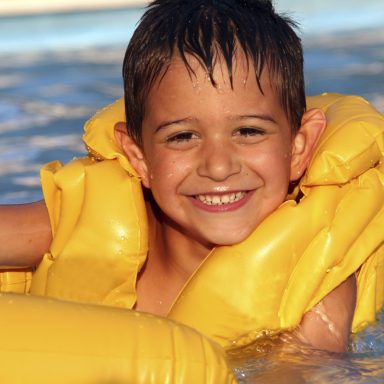UK data has confirmed that the number of A&E attendances by young people aged 18 or under with a recorded diagnosis of a psychiatric condition more than tripled between 2010 and 2018-19 . ( source RCPsych)

For 1 hour (online ) patient initial consultation slots plus written report : £395
For 30 min (online) patients follow up slots plus report and prescription if needed : £270
Face to Face patient initial consultation slots (1 hour) and report ; available in our partner CQC registered clinic : £660
🆕Full diagnostic assessment , risk assessment and treatment plan with a range of CYP mental health problems, such as oppositional defiant disorder , depression, anxiety, schizophrenia, bipolar affective disorders ( 1 and 2) ,Disruptive mood dysregulation disorder, separation anxiety disorder , specific phobias, selective mutism,social anxiety disorder , panic attacks ,agoraphobia , generalised anxiety disorder,skin picking disorder , hair-pulling disorder , body dysmorphic disorder,substance misuse, Gaming Disorder, Attachment Disorder ,Grief Disorder , dissociative identity disorder ,conversion disorder ,anorexia nervosa , bulimia nervosa, post-traumatic stress disorder, complex PTSD , personality disorders , Autism Spectrum Disorders , Trichotillomania , attention deficit hyperactivity disorder , (ADHD), social (pragmatic) communication disorders,Specific Learning Disorders,Developmental Coordination Disorder,Tic Disorders.
I will liaise with your GP , school , local CAMHS and am able to offer flexible follow-up appointments to monitor clinical progress.
Appointments can take place face to face in our partner clinic (CQC registered) or remotely via video conference including weekends , school holidays and Bank Holiday weekends.🆕
IDEAS LEAD TO TRANSFORMATION
Evidence based clinical thinking in line with latest national and international guidelines and scientific research
We will set up a face-to-face meeting or online consultation with the CAMHS medic to have initial discussion of a CAMHS service provision plan. A summary of the discussion along with an action plan will be emailed within 24 hours of initial meeting with expectation to do further homework help achieve the S.M.A.R.T Goal.
Initial 1:1 meeting costs £450 per hour ( only for CAMHS clinicians) . Longer consultation slots are available and advised accordingly after initial meeting.

Managing ADHD ( GOOD PRACTICE : NICE GUIDELINES)
FOR CAMHS MEDICS (ONLY)
Children under 5 years
- These recommendations are for healthcare professionals with training and expertise in diagnosing and managing ADHD.
- Offer an ADHD-focused group parent-training programme to parents or carers of children under 5 years with ADHD as first-line treatment.
- If after an ADHD-focused group parent-training programme, ADHD symptoms across settings are still causing a significant impairment in a child under 5 years after environmental modifications have been implemented and reviewed, obtain advice from a specialist ADHD service with expertise in managing ADHD in young children
- Do not offer medication for ADHD for any child under 5 years without a second specialist opinion from an ADHD service with expertise in managing ADHD in young children.
Children aged 5 years and over and young people
- These recommendations, covering children aged 5 years and over and young people, are for healthcare professionals with training and expertise in diagnosing and managing ADHD. March 2018 – medicines used for treating ADHD did not have a UK marketing authorisation for children aged 5 years or under.
- offer additional support to parents and carers of all children aged 5 years and over and young people with ADHD. The support should be ADHD focused, can be group based and as few as 1 or 2 sessions. It should include:
- education and information on the causes and impact of ADHD
- advice on parenting strategies
- with consent, liaison with school, college or university
- both parents and carers if feasible.
- If a child aged 5 years or over or young person has ADHD and symptoms of oppositional defiant disorder or conduct disorder, offer parents and carers a parent-training programme as well as group-based ADHD-focused support.
- Consider individual parent-training programmes for parents and carers of children and young people with ADHD and symptoms of oppositional defiant disorder or conduct disorder when:
there are particular difficulties for families in attending group sessions (for example, because of disability, needs related to diversity such as language differences, learning disability [intellectual disability], parental ill-health, problems with transport, or where other factors suggest poor prospects for therapeutic engagement)
a family's needs are too complex to be met by group-based parent-training programmes.
- Offer medication for children aged 5 years and over and young people only if:
- their ADHD symptoms are still causing a persistent significant impairment in at least one domain after environmental modifications have been implemented and reviewed
- they and their parents and carers have discussed information about ADHD.
- a baseline assessment has been carried out.
- Consider a course of cognitive behavioural therapy (CBT) for young people with ADHD who have benefited from medication but whose symptoms are still causing a significant impairment in at least one domain, addressing the following areas:
social skills with peers
problem-solving
self-control
active listening skills
dealing with and expressing feelings.
FOR CAMHS MEDICS ONLY (NICE GUIDELINES)
- All medication for ADHD should only be initiated by a healthcare professional with training and expertise in diagnosing and managing ADHD.
- Healthcare professionals initiating medication for ADHD should:
- be familiar with the pharmacokinetic profiles of all the short- and long-acting preparations available for ADHD
- ensure that treatment is tailored effectively to the individual needs of the child, young person or adult
- take account of variations in bioavailability or pharmacokinetic profiles of different preparations to avoid reduced effect or excessive adverse effects.
Baseline assessment
- Before starting medication for ADHD, people with ADHD should have a full assessment, which should include:
- a review to confirm they continue to meet the criteria for ADHD and need treatment
- a review of mental health and social circumstances, including:
- presence of coexisting mental health and neurodevelopmental conditions
- current educational or employment circumstances
- risk assessment for substance misuse and drug diversion
- care needs
- a review of physical health, including:
- a medical history, taking into account conditions that may be contraindications for specific medicines
- current medication
- height and weight (measured and recorded against the normal range for age, height and sex)
- baseline pulse and blood pressure (measured with an appropriately sized cuff and compared with the normal range for age)
- a cardiovascular assessment.
An electrocardiogram (ECG) is not needed before starting stimulants, atomoxetine or guanfacine, unless the person has any of the features cardiovascular illness or a co-existing condition that is being treated with a medicine that may pose an increased cardiac risk.
- Refer for a cardiology opinion before starting medication for ADHD if any of the following apply:
history of congenital heart disease or previous cardiac surgery
history of sudden death in a first-degree relative under 40 years suggesting a cardiac disease
shortness of breath on exertion compared with peers
fainting on exertion or in response to fright or noise
palpitations that are rapid, regular and start and stop suddenly (fleeting occasional bumps are usually ectopic and do not need investigation)
chest pain suggesting cardiac origin
signs of heart failure
a murmur heard on cardiac examination
blood pressure that is classified as hypertensive for adults
- Refer to a paediatric hypertension specialist before starting medication for ADHD if blood pressure is consistently above the 95th centile for age and height for children and young people.
- Offer methylphenidate (either short or long acting) as the first line pharmacological treatment for children aged 5 years and over and young people with ADHD.
March 2018 – this is an off-label use for children aged 5 years. - lisdexamfetamine for children aged 5 years and over and young people who have had a 6‑week trial of methylphenidate at an adequate dose and not derived enough benefit in terms of reduced ADHD symptoms and associated impairment.
March 2018 – this is an off-label use for children aged 5 years. - Consider dexamfetamine for children aged 5 years and over and young people whose ADHD symptoms are responding to lisdexamfetamine but who cannot tolerate the longer effect profile.
March 2018 – dexamfetamine is only licensed to treat ADHD in children and young people aged 6 to 17 years when response to methylphenidate is clinically inadequate. It is not licensed for children and young people aged 5 to 17 years who have responded to but are intolerant of lisdexamfetamine. - Offer atomoxetine or guanfacine to children aged 5 years and over and young people if:
- they cannot tolerate methylphenidate or lisdexamfetamine or
- their symptoms have not responded to separate 6‑week trials of lisdexamfetamine and methylphenidate, having considered alternative preparations and adequate doses.
March 2018 – this is an off-label use of atomoxetine and guanfacine for children aged 5 years.
PLEASE READ THIS GUIDELINES CAREFULLY ( see Reference)
For all patient related inquiries :
Please send 4 pieces of information:
(1) Name & relation to patient
(2) brief clinical rationale for enquiry
(3) age group ( only up to age 18y allowed)
(4) your contact number / email.
email at consult@DrKohli.co.uk
Our medical secretaries will get in contact asap and book appointment same day if requested.
PAGE 3 OF 10
Dr Gaurav Kohli(GMC Number:6029901 & RCPsych Membership Number :810969) : Research and Academic Psychiatry Blog| CAMHS Consultancy |Evidence Based Medicine
© Copyright. All rights reserved.
We need your consent to load the translations
We use a third-party service to translate the website content that may collect data about your activity. Please review the details in the privacy policy and accept the service to view the translations.
